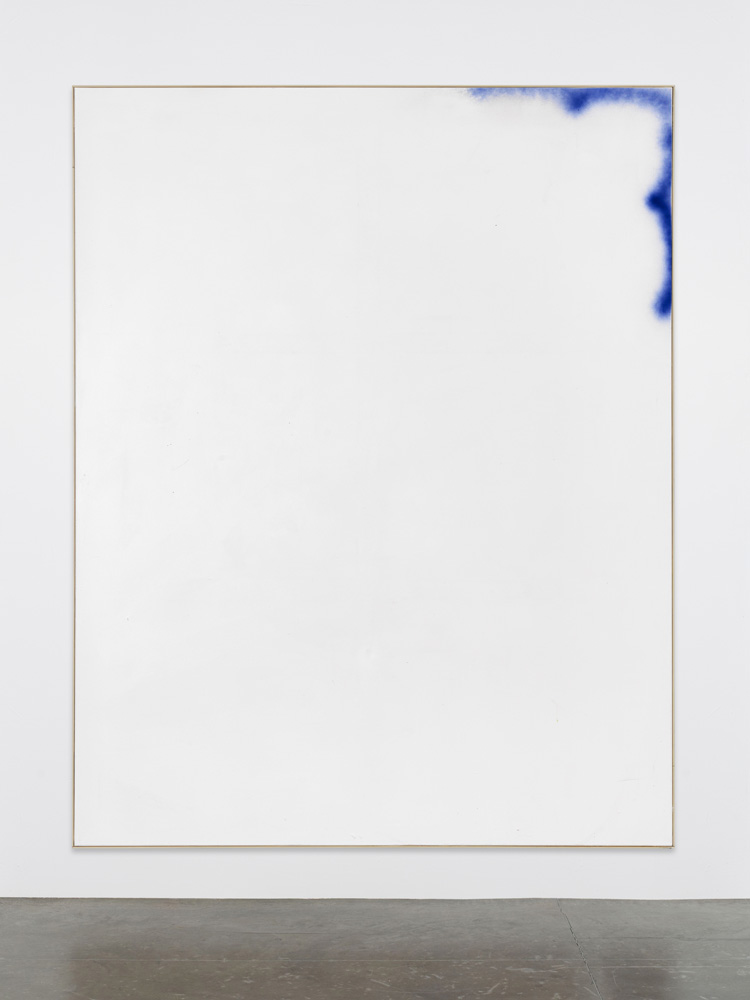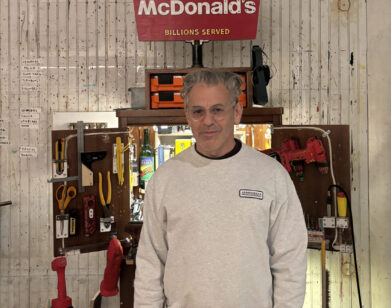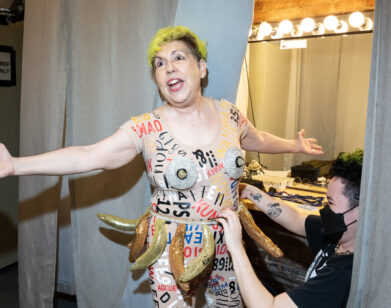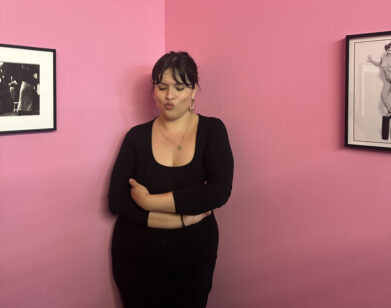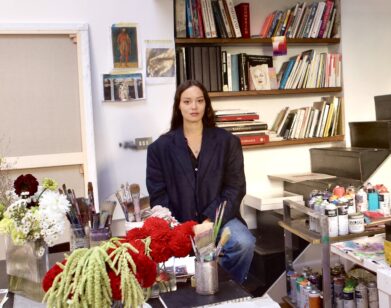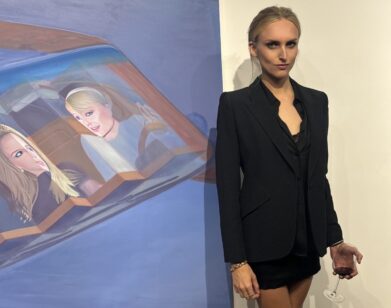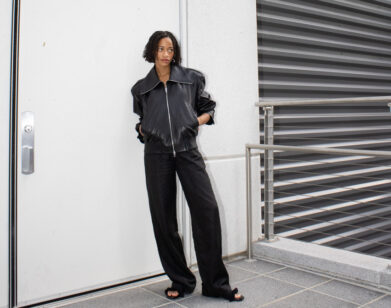David Ostrowski
When I call David Ostrowski, the Cologne-based painter, the connection is faulty, and for every sentence we speak, another is stolen by crackling, static-filled airwaves. His German accent is thick and his English is broken—”super bad” as he puts it—so in addition to the always tricky task of speaking about art on the phone, an additional haze has settled around our conversation. Considering his paintings, however, this mode of communication seems apt. The 32-year-old Ostrowski describes himself as a romantic painter in search of a dramatic, emotional beauty he likens to ’90s German pop music, but his canvases don’t necessarily radiate these qualities: they are understated, sullied, and spare, speckled with accidents, usually with a few abstract gestures floating in the foreground—nothing is clear about them. He refers to his mark-making as a series of mistakes, and the longer you look at his work, the wider the vocabulary of failure appears to be: the unsure stroke, the barely started mark, the smear, the smudge, the spot, the awkward attempt.
Mostly, his paintings are empty. He spends 80 percent of his time at his studio overlooking the Rhine River not painting. Instead he reads novels while listening to loud music as a way of absorbing the music’s energy. “I’m reading a love story now, but I have no idea what it’s about,” he says. “Usually I’m just reading the letters and the sentences, but I’m forgetting the content. It’s chaos in my head. I have no thoughts about the next step in painting.”
Ostrowski often uses spray-paint, not because of its urban-graffiti connotations, but because it can be used fluidly and immediately, with no prep. In this way, the medium has an inherent drama to it. Like expressionism, it reflects the energy of making art. It captures a moment. “The spray gives you just one chance,” says Ostrowski, who will have a solo show of his latest work this month at Simon Lee in London. “You can’t repair or go over your marks. Oil paint has too many possibilities. I’m a big fan of no possibilities.”

